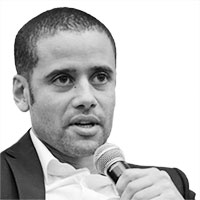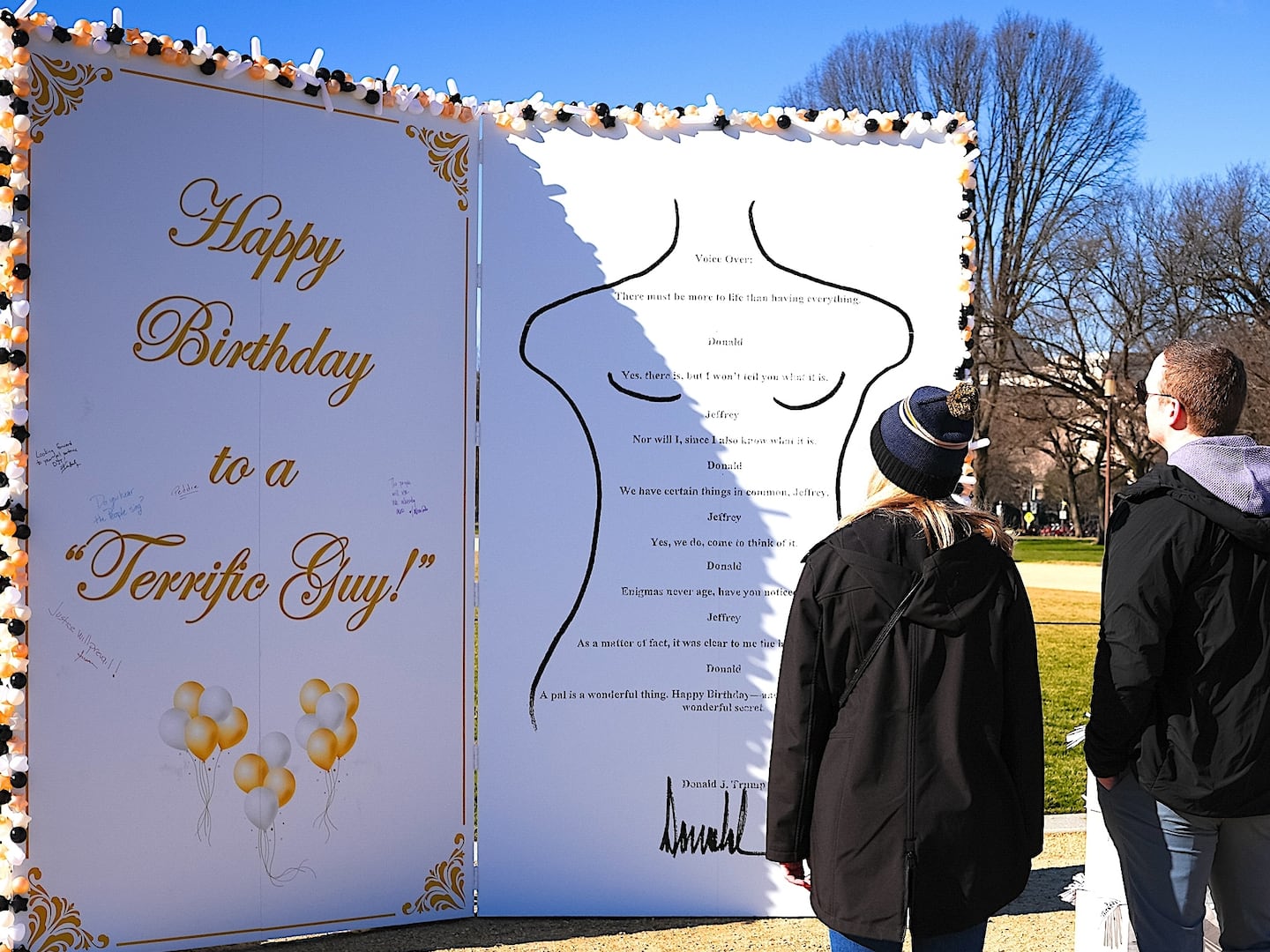French comedian Dieudonné has paid a high price for his “anti-establishment” (a euphemism for anti-Semitic) outbursts. Not only has he been convicted of hate speech on several occasions--in January, French interior minister Manuel Valls banned him from performing in several French cities, in February Britain’s Home Office banned him from entering the United Kingdom--Dieudonné and his growing legion of “quenelle” hailing supporters have become emblematic of the resurgence of European anti-Semitism.
While Dieudonné may be one of the most prominent European peddlers of anti-semitism, he is by no means the only one. In October 2013, the European Union Fundamental Rights Agency issued a report based on a survey of more than 5000 European Jews. The results show the vivid fears of resurgent anti-Jewish sentiment: Seventy-six percent of those surveyed responded that anti-Semitism has become worse in their respective countries within the last five years. This comports with recent surveys conducted by the Anti-Defamation League (ADL). In its 2012 survey, all but one of 10 European countries studied experienced an increase in anti-Semitic attitudes (as defined by the ADL) since the previous survey from 2009. With the exception of the Netherlands, between 15 and 64 percent of those in countries surveyed displayed anti-Semitic attitudes, with France registering a less than respectable 24 percent.
In January, Paris was scarred by sickening scenes as several thousand protesters took to the streets shouting anti-Semitic slogans (“Jews get out, France does not belong to you”). Anti-Semitism in France has manifested not only in anti-Semitic expression, but also in anti-Semitic deed, such as the brutal 2012 murder of Jewish children and a rabbi (as well as French soldiers) in Toulouse. Jewish communities in many European countries, including France and Sweden, are experiencing an exodus, with members leaving for Israel and other countries, many driven by security concerns.
Given the very real problems of anti-Semitism and anti-Semitic violence, support for the tough stance of French authorities, which is in line with several other European countries and supported by European human right institutions, may be understandable. In the shadow of the Nazi era, anti-Semitism is seen as a cancer that must be radiated to prevent its spread. In January, Council of Europe’s Human Rights Commissioner Nils Muižnieks stated that European states should punish hate speech and that “states which have not done so yet should reinforce their legislation to ensure that the intentional, public condoning, denying or trivialisation of the Holocaust are punishable by effective, proportionate and dissuasive penalties.”
The European Union has adopted a framework decision obliging all member states to criminalize hate speech--and most European states had already complied. As l’affaire Dieudonné demonstrates, France has extremely harsh laws and Dieudonné is not the only one falling afoul of them. So have fashion designer John Galliano and far-right politician Jean-Marie Le Pen. In 2011, Danish film director Lars Von Trier was the target of an investigation for jokingly having said that he admired Hitler during a press conference at the Cannes Film Festival. Only a groveling apology saved him from being charged.
In fact it is even illegal to advocate the boycotting of Israel (or other nations) under France’s anti-discrimination laws. Yet the confluence of increasingly draconian laws targeting free speech and an increase in anti-Semitic attitudes should give lawmakers pause. If, as the Council of Europe’s Human Rights Commissioner insists, hate speech laws are an effective tool in combating anti-Semitism then we should expect that the levels of anti-Semitism would have been significantly higher if these laws had not been enforced--and the solution would be greater limits on freedom of expression. But as the current enforcement of these laws shows, further tightening would severely undermine one of the cornerstones of liberal democracy.
Indeed, there is no evidence that such legislation has diminished anti-Semitism, and may have actually increased it. Likewise, laws against denying the Holocaust have clearly failed to eradicate the problem, while they may have even encouraged Holocaust denial by endowing it with a veneer of heroism and intellectual martyrdom.
Such laws also are inherently arbitrary in their scope and application. French philosopher Bernard Henri Levy has been a staunch defender of the right to offend and blaspheme--when it comes to Islam. Yet he vigorously defends laws against hate speech and Holocaust denial. And several Muslim states and organizations have pointed to the ban against Holocaust denial as a justification for demanding bans against “Islamophobia,” accusing Europeans of hypocrisy. Moreover, several former Soviet states have demanded that European law also criminalize the denial of the crimes of Stalin and communism, again justifying this demand on existing laws against Holocaust denial.
The United States has seen high levels of anti-Semitic attitudes in the past, but addressed it without resorting to restrictions on speech. The ADL has surveyed anti-Semitic attitudes in America since 1964 and charted a significant decrease in hostility towards Jews. (In 2013, 12 percent of Americans harbored anti-Semitic attitudes, as opposed to 29 percent in 1964.) The steady drop in American anti-Semitism--and an increase in the levels of racial tolerance and interracial marriages--has taken place concurrently with the Supreme Court’s strengthening of the First Amendment’s protections in decisions. In the U.S., mere expressions of hatred toward Jews or other groups are protected speech, unless they constitute incitement to imminent violence. Accordingly, in 1977 the courts decided that the First Amendment gave neo-Nazis the right to march through Skokie, Illinois, a town near Chicago home to one of the largest populations of Holocaust survivors outside Israel.
The measures adopted against freedom of expression in France and many other European countries would plainly be unconstitutional in the United States. Yet it would seem that American Jewry feels much more confident and safe than is the case in most European states. While it has not been completely solved, American anti-Semitism has been diminished by religious, educational, and other civil institutions, and through mass media that have exposed prejudice to ridicule.
The aforementioned surveys may not be sufficient to make any firm conclusions about correlation, and much less about causation. But other studies do suggest that what we may call first freedoms --the freedoms of conscience, expression and religion-- are much more likely to encourage than endanger tolerance and social peace. Thus a 2011 PEW study found that countries that enforce blasphemy laws experience significantly higher levels of social violence than countries that do not enforce such laws. One need only think of the sectarian violence visited upon religious minorities in Pakistan, which vigorously enforces its blasphemy laws, to realize that restricting first freedoms is no viable path to defeating hatred and achieving social peace in diverse societies.
European history also suggests the impotence of criminal law in these matters. Notorious Nazi Jew-baiter Julius Streicher was twice imprisoned for his anti-Semitic effusions during the Weimar Republic, and in Yugoslavia the criminal code stipulated that whoever “incites or fans national, racial or religious hatred or discord between peoples and nationalities living in [Yugoslavia]” would be punished by imprisonment of up to ten years. Alas, that law did nothing to change the attitudes that made possible the racist slaughter at Srebrenica.
While there are important differences in history, culture and governance that may help explain the differences in anti-Semitic attitudes between the U.S. and Europe, the positive relationship between first freedoms and tolerance in the U.S. should inform European approaches toward combating anti-Semitism and other forms of racism. While it is crucial that European governments and institutions condemn anti-Semitism, Europeans cannot rely on governments to do the job of weeding out such attitudes for them, Or on criminal laws that erode fundamental freedoms. That is first and foremost a task for individual European citizens and civil society. And no civil society has ever been strengthened by limiting the flow of democratic oxygen and first freedoms.





